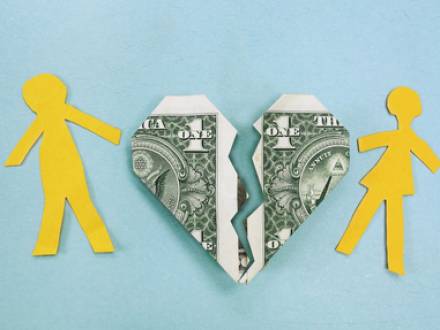Can We Get Divorced if We Are in Bankruptcy?
 Filing for divorce and bankruptcy at the same time is not unusual but it does require careful coordination. When financial stress plays a role in marital breakdown, many divorcing couples find themselves facing bankruptcy either shortly before or during the divorce process. As of June 2025, no law in Illinois prohibits a married couple from divorcing simply because they are in an active bankruptcy case. However, the interaction between the two legal processes can affect how long your divorce takes and how your property is divided, making it exceedingly important to work with an experienced Illinois divorce lawyer.
Filing for divorce and bankruptcy at the same time is not unusual but it does require careful coordination. When financial stress plays a role in marital breakdown, many divorcing couples find themselves facing bankruptcy either shortly before or during the divorce process. As of June 2025, no law in Illinois prohibits a married couple from divorcing simply because they are in an active bankruptcy case. However, the interaction between the two legal processes can affect how long your divorce takes and how your property is divided, making it exceedingly important to work with an experienced Illinois divorce lawyer.
Will the Bankruptcy Court Delay the Divorce?
Bankruptcy Courts do not have the authority to stop a divorce case outright. However, the automatic stay that takes effect when someone files for bankruptcy can temporarily delay part of the divorce, especially the division of assets and debts. That is because property division may involve assets that are part of the bankruptcy estate, which falls under the exclusive control of the Bankruptcy Court until the case is resolved or dismissed.
If one or both spouses file under Chapter 7, the bankruptcy estate is usually closed within four to six months. Once that happens, the family Court can proceed with dividing marital property. If one spouse files under Chapter 13, the repayment plan lasts three to five years. That may complicate matters further, especially if the repayment obligations are tied to marital debts.
Can We File for Divorce During a Bankruptcy?
You can file for divorce while a bankruptcy case is pending. But the better question is whether you should. If your case involves complex property division, such as real estate, retirement accounts, or business assets, the Court may not be able to finalize those issues until the bankruptcy case is resolved or the automatic stay is lifted. In practice, many couples choose to either resolve the bankruptcy first or at least wait until the discharge is granted before finalizing their divorce settlement.
In some cases, it makes sense to file jointly for bankruptcy before starting the divorce. This allows both spouses to wipe out certain marital debts before negotiating property division or spousal support. In other cases, especially when spouses are no longer cooperating, it may be better for each to file separately and proceed with divorce at the same time.
What Happens to Marital Debt in Bankruptcy Cases?
What happens to marital debt depends on whether the debt is discharged in bankruptcy and whether one or both spouses filed. If one spouse agrees to take on joint debt as part of the divorce but then discharges it in bankruptcy, creditors may still come after the other spouse.
In Illinois divorce cases, Judges are alert to this issue. If a spouse is attempting to use bankruptcy strategically — for instance, by agreeing to take on a joint credit card and then walking away from it in bankruptcy — the Court may compensate the other spouse through an unequal property award or a contempt action if the divorce decree is violated.
This is one reason it is important to work with an attorney who understands how family law and bankruptcy law interact. A poorly timed filing or vague divorce judgment can result in one spouse bearing more financial risk than intended.
Do Bankruptcy Courts Handle Late Child Support Payments?
Bankruptcy Courts do not change or get rid of child or spousal support obligations. These are "priority debts" under federal bankruptcy law, and they cannot be discharged. However, the amount of income available to pay support may change if one party is making payments under a Chapter 13 plan.
Illinois family law Judges consider all of someone’s financial circumstances when setting or modifying support. If a parent or ex-spouse is in bankruptcy and claims to have reduced income, the Court will examine whether those claims are true and whether they justify a change in support. The fact that someone has filed for bankruptcy does not, by itself, excuse that person from paying court-ordered support.
Contact a Rolling Meadows, IL Divorce Attorney
If you are going through both a divorce and bankruptcy, you need legal advice specifically for your financial and legal circumstances. The Hoffman Estates, IL divorce attorney at The Law Office of Nicholas W. Richardson, P.C. can help you protect your rights and ensure that the timing and terms of your divorce work in your favor. Contact our firm at 847.873.6741 to schedule your free consultation.
Introducing The Law Office of Nicholas W. Richardson
Nicholas W. Richardson is an experienced divorce lawyer and mediator whose comprehensive legal knowledge, commitment to clients and reputation for results bring lasting solutions to your problems.






